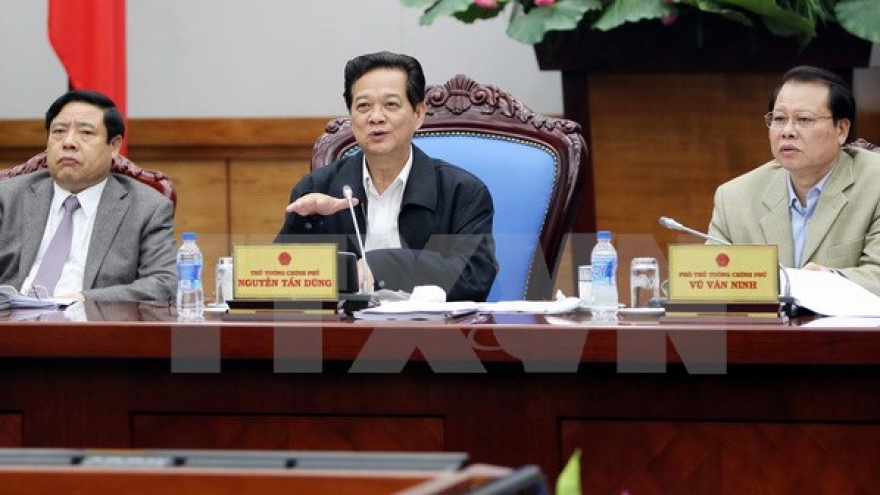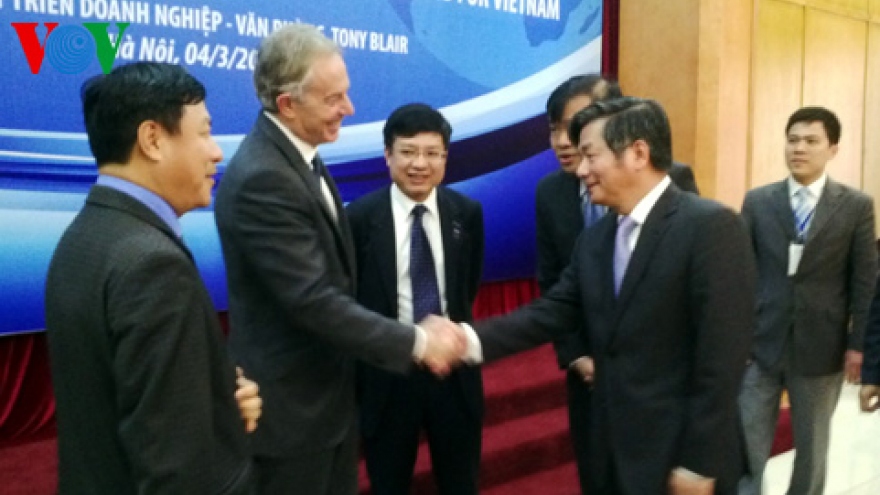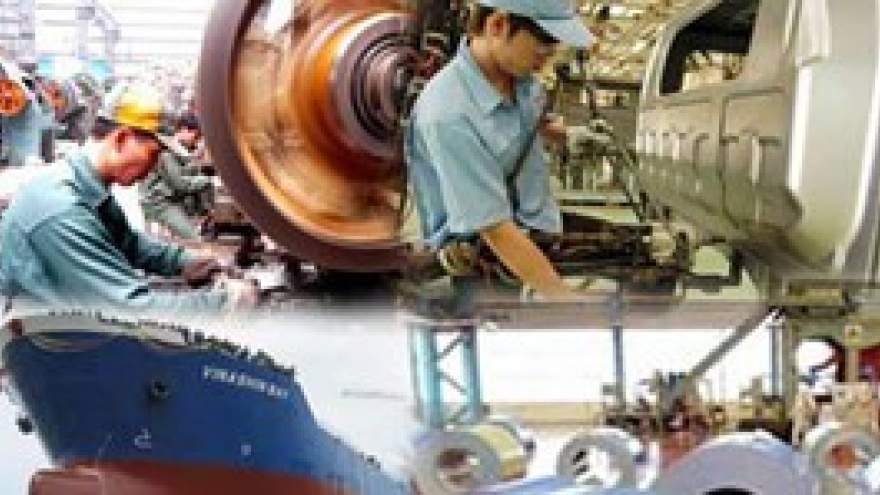Restructuring of SOEs still slow
The equitization process continues to disappoint despite there clearly being the will to wrap it up as quickly as possible.
The goal of equitizing 432 State-owned enterprises (SOEs) in 2014 and 2015 has gone unmet but the effort and decisive policies from the government have created substantial changes in the process of restructuring public enterprises.
This represents an essential step in improving the efficiency of enterprises as economic integration moves forward.
According to the Ministry of Finance (MoF), the restructuring of SOEs is one of three main pillars of economic restructuring it has been tasked to conduct.
In 2015 the ministry actively removed bottlenecks in policy and pushed implementation of restructuring plans.
 |
Modest results
To remove obstacles, last year the MoF prepared Decree No. 87/2015/ND-CP dated October 6, 2015 on monitoring State capital invested in enterprises, Decree No. 91/2015/ND-CP dated October 13, 2015 on State capital investment in enterprises and the use and management of capital and assets in enterprises, and Decision No. 41/2015/QD-TTG dated September 15, 2015 on selling shares in blocks to attract investors and contribute to the restructuring of SOEs.
It also actively supervised SOEs in implementing approved restructuring schemes. In November 173 SOEs were equitized, bringing the total to 422 in the 2011-2015 period, or 78% of the target.
Total capital divested from five sensitive areas - securities, investment funds, insurance, banking and finance, and real estate - was VND4.9 trillion (US$222.5 million).
The amount of capital to be divested, however, remains high, at VND15.6 trillion (US$697.8 million).
So far, Vietnam has restructured 6,375 enterprises, of which 3,576 were equitized. According to equitized enterprises, 85% have earned higher revenues and 90% have recorded higher profits every year since completing the process.
Eighty-three of the 91 corporations, excluding 18 corporations operating under the Ministry of Defense, have submitted restructuring schemes, of which 63 have been approved.
The brightest point in the equitization picture can be found in the transport sector.
By the end of 2015 the Ministry of Transport (MoT) had exceeded its equitization targets, with 137 SOEs successfully equitized.
Of these, 16 were large-scale corporations, or 67 more than contained in the plan. The value of the ministry’s equitization efforts stood at VND4.4 trillion (US$196.8 million) in 2015 and it will complete its divestments from all corporations within the first quarter of this year.
Deputy Prime Minister Vu Van Ninh said that MoF has actively coordinated with related ministries and departments to remove obstacles and promote rapid equitization.
“Some of the efforts introduced by MoT have become standard mechanisms, such as selling shares in blocks, which remove many difficulties in selling State capital,” he said.
The government has also permitted the State Capital Investment Corporation (SCIC) to divest their holdings in ten large enterprises.
“If you look at the dairy field there is no limitation on business participation,” said World Bank Country Director for Vietnam Victoria Kwakwa.
“Vinamilk equitized a long time ago and the State share ratio has declined.” She added that when the State steps back from areas where private enterprises can do better it has a positive impact on the business community.
“Vinamilk has worked very well and I think they will continue to conduct good business,” she said.
Low equitization quality
According to MoF, the SOE restructuring process over recent years has remained tardy, the amount of State capital divested is still low, and the proportion of capital held by the State in equitized enterprises is too high.
Together with the global financial crisis and economic difficulties in Vietnam, this is also caused by problems relating to the leaders of many equitized enterprises.
They fail to completely understand the significance and benefits from restructuring for socioeconomic development so do not give it due regard.
The actual process of State divestment has also not been truly effective, so restructuring has fallen short of expectations.
This is reflected by the high proportion of State shares in SOEs post-equitization.
Four years after its process began, the government still holds 95% in the Vietnam National Petroleum Group (Petrolimex) and the group is yet to determine its strategic investors.
It still operates as an SOE despite having changed its management form.
Many corporations under the Ministry of Industry and Trade (MoIT) have operated effectively post-equitization but with high levels of State capital, such as the Saigon Beer-Alcohol-Beverage Joint Stock Corporation (Sabeco) and the Hanoi Beer Alcohol and Beverage Joint Stock Corporation (Habeco).
As the ratio of State capital was set at around 80%, many investors didn’t see them as operating under a market mechanism despite them having strategic shareholders.
According to Phan Dang Tuat, Head of the Committee for Business Innovation and Development at MoIT, the government decided to sell a stake of over 20% in many companies but investors prefer enterprises with more than 51% on offer.
“When enterprises sell less than 50%, investors are putting their money in but have no rights,” Mr. Tuat said.
Agreeing, Deputy Minister of Industry and Trade Hoang Quoc Vuong believes that the success of a share sale depends on the stake retained by the State.
He proposed a revision of Decision No. 37/2014/QD-TTg dated June 18, 2014 from the Prime Minister on the criteria and classification of SOEs.
“In their equitization plan enterprises must sell less than 5% of State capital at the beginning,” Mr. Vuong said.
“Enterprises must to clearly post this information to investors, even though the initial public offering (IPO) may be unable to sell.”
Mr. Takashi Sakakibara, Special Adviser to the Chief Representative of the Japan International Cooperation Agency (JICA), said the aim of equitization is to reduce the share holding of the State to improve business efficiency.
If the State retains a large proportion of shares any change post-equitization will only be superficial.
Meanwhile, according to Mr. Dang Quyet Tien, Deputy Director of the Ministry of Finance’s Corporate Finance Department, the government issued Decision No. 41 permitting the sale of shares in large blocks so that strategic investors may properly engage in the enterprise’s activities.
Some large corporations have held IPOs and sold just a few percent of shares on offer and been instructed by the Prime Minister to continue sales to ensure the equitization proceeds on schedule.
“A change in the characteristics of the enterprise is the point of the whole process,” Mr. Tien said.
“Enterprises who have conducted an IPO are required to list on the stock exchange. They must therefore accept that they are participating in a new, more transparent game,” he said.



